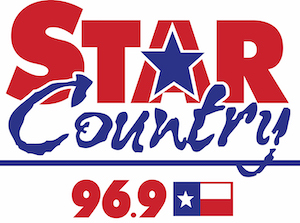
Fiscal Notes: Texas and the 1115 Medicaid Waiver
(AUSTIN) — In the August edition of Fiscal Notes, released today, the Comptroller’s office examines the state’s Medicaid waiver for its Healthcare Transformation and Quality Improvement Program, commonly called the 1115 Medicaid waiver.
The federally funded program will provide Texas with up to $25 billion between 2018 and 2022, but it is currently set to expire during the next two years. The Texas Health and Human Services Commission (HHSC) is negotiating with the federal government to extend the waiver. Without it, vulnerable populations could lose access to vital health care resources.
“Federal revenue provides more than half of the money we spend on health and human services. Anything that affects that funding stream can have significant consequences,” said Texas Comptroller Glenn Hegar. “The 1115 Medicaid waiver channels federal funding to medical providers that serve the state’s most vulnerable populations.”
This issue also takes a look at Texas’ state jail program, created in 1993 as a less restrictive and more cost-effective alternative to prison, with an emphasis on treatment, rehabilitation and successful re-entry to society. Recently, some have criticized the program for drifting away from its original goals.
Fiscal Notes is available online and can be received by subscribing via the Comptroller’s website.
Fiscal Notes furthers the Comptroller’s constitutional responsibility to monitor the state’s economy and estimate state government revenues. It has been published since 1975, featuring in-depth analysis concerning state finances and original research by subject-matter experts in the Comptroller’s office.
Texas and the 1115 Medicaid Waiver
In the August edition of Fiscal Notes, the Comptroller’s office highlights the 1115 Medicaid waiver. It is a federal provision that has channeled billions of dollars to innovative health and human services projects in our state. One part of the waiver is coming to an end. Texas is seeking to renew the other part to ensure that federal aid continues flowing to programs serving the most vulnerable Texans.
In this issue, we also examine Texas’ state jails program. It was created in 1993 to provide a less-restrictive institutional setting for nonviolent felons with an emphasis on treatment, rehabilitation, and successful re-entry into society. Today, state jails are more commonly used to temporarily hold criminals on their way to conventional prison units, leading to calls for a reset of the program.
Texas Comptroller Glenn Hegar Announces High Demand for Texas Short-Term Notes
(AUSTIN) — Texas Comptroller Glenn Hegar announced today’s sale of $8 billion in Texas Tax and Revenue Anticipation Notes (TRAN) received a net interest rate of 1.34 percent.
“Texas remains an excellent investment, and we are pleased with the market’s reaction to this sale,” Hegar said. “A net interest rate of 1.34 percent on what is essentially a one-year note. The one-year Treasury notes are yielding about 1.7 percent and are indicative of Texas’ strong credit and track record of responsible fiscal management. That’s clearly very appealing to market participants in the current interest-rate environment.”
The Comptroller’s office received 67 bids worth $22.77 billion, 2.85 times the amount offered for sale. Money from the sale of the TRAN is used to help fund expenditures such as public-school payments made early in the fiscal year, before the arrival of tax revenues later in the year.
The $8 billion in notes from today’s sale will be repaid on Aug. 27, 2020.








 EastTexasRadio.com Powered by Ten Stations
EastTexasRadio.com Powered by Ten Stations




